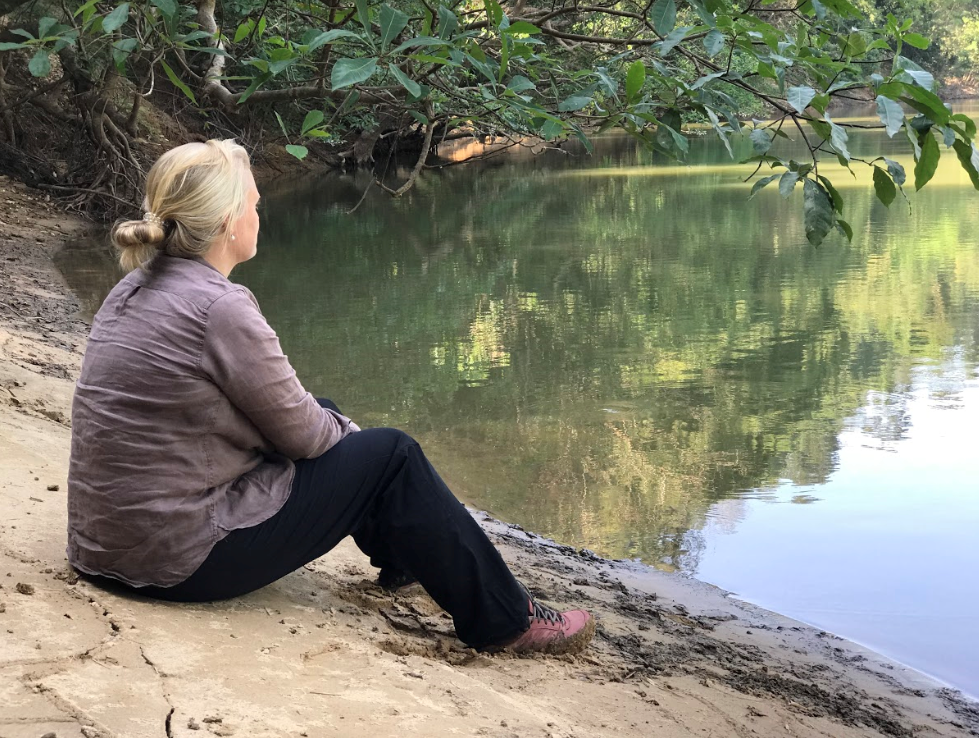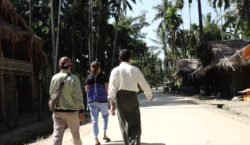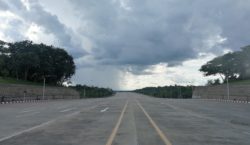Swedish Hanna Helsingen works for World Wide Fund for Nature in Myanmar to make the environment a priority for the Myanmar government. Her life here is both challenging and enjoyable and she is only hesitantly getting ready to leave.
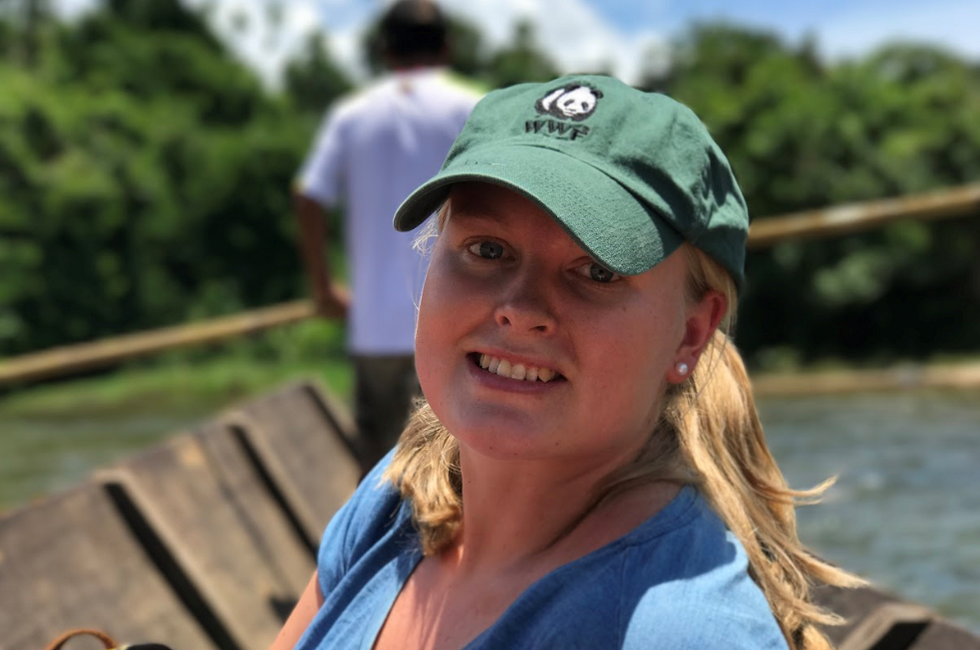
Underneath the green leaves of the Dawna Tenasserim Landscape in Myanmar, Asian elephants, tigers and other wildlife still roam the forest. Hornbills and other birds still fly high and are heard singing in the mornings and evenings. But soon you will also hear the sound of something completely different: Cars. A multi-lane road, called the Dawei Road, is set to be built through the forest.
One who works on convincing the Myanmar government to design the road in a way that interferes as little as possible with the wildlife is Swedish Hanna Helsingen. She works for World Wide Fund for Nature (WWF) and the 30-year-old Swede moved to Myanmar in 2014 to be green economy programme manager.
In her job she spends a lot of her time in meetings and correspondence with various departments of the Myanmar government and other international organisations.
“I try to ensure that environment is constantly on the table when decisions are being made,” she says.
WWF in Myanmar
When Hanna Helsingen was 24-years old, she made a list of 10 countries around the world where she could imagine herself work. The only Asian country to make it into her list was Myanmar, formerly known as Burma.
Myanmar has been a British colony until it was granted independence after World War Two, but became a military dictatorship few years later. The military government was officially dissolved in 2010 following a general election. Myanmar has opened up to the outside world and attracts a growing number of tourists, all though one third of the country’s 50 million population still live in poverty.
“I’ve always been intrigued by Myanmar’s history, but also the fact that it’s very rich in nature. I have also been very excited about being part of the opening up of a country, that was still fairly new to many,” Hanna Helsingen says.
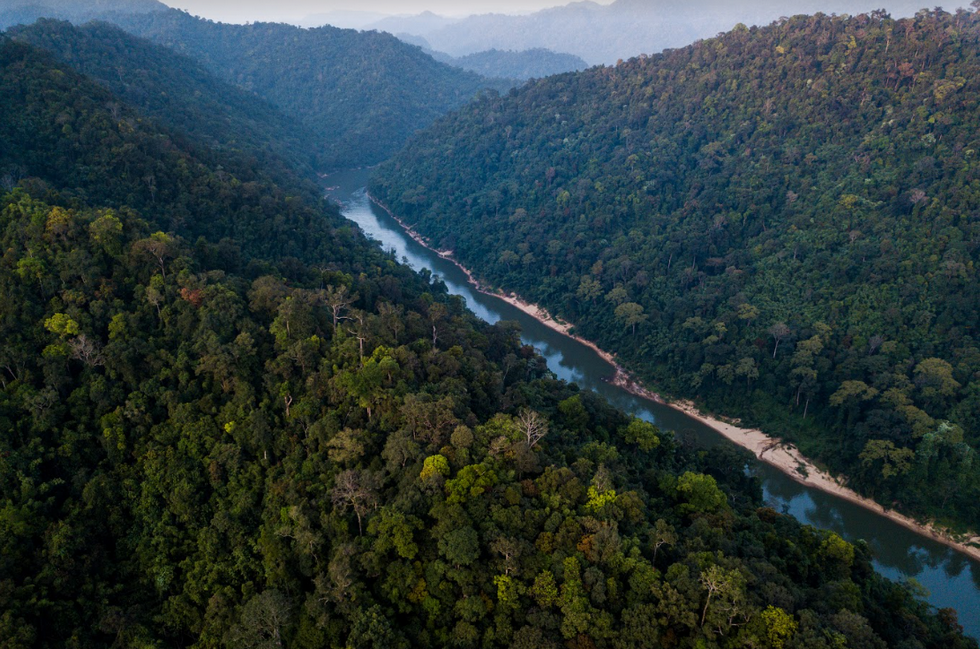
She started working in Myanmar before WWF officially had opened their first office in the country. Now, they have four offices around the country. WWF primarily focuses on conserving the forests, rivers and wildlife in Myanmar, especially the Dawna Tenasserim Landscape that is one of WWF’s five worldwide priority landscapes.
“WWF is not saving nature just for nature itself but also for the people living here, because they are truly dependent on nature. We are trying to strike a balance where both people and nature can thrive at the same time,” Hanna Helsingen explains.
Life in Myanmar’s capital
As a kid, Hanna Helsingen picked mushrooms with her grandfather when the Swedish forests turned golden. Among the Swedish forests and lakes her interest in nature conservation started to grow. That lead her to pursue a bachelor of political science in Uppsala and masters in public administration and environmental science and policy in New York. She has since lived in Switzerland and now Myanmar.
She sits outside her home in Naypyidaw, the capital of Myanmar, with a street dog on her lap. A very clean street dog she underlines with a laugh. Along with three other street dogs, it decided to move in shortly after she moved here herself.
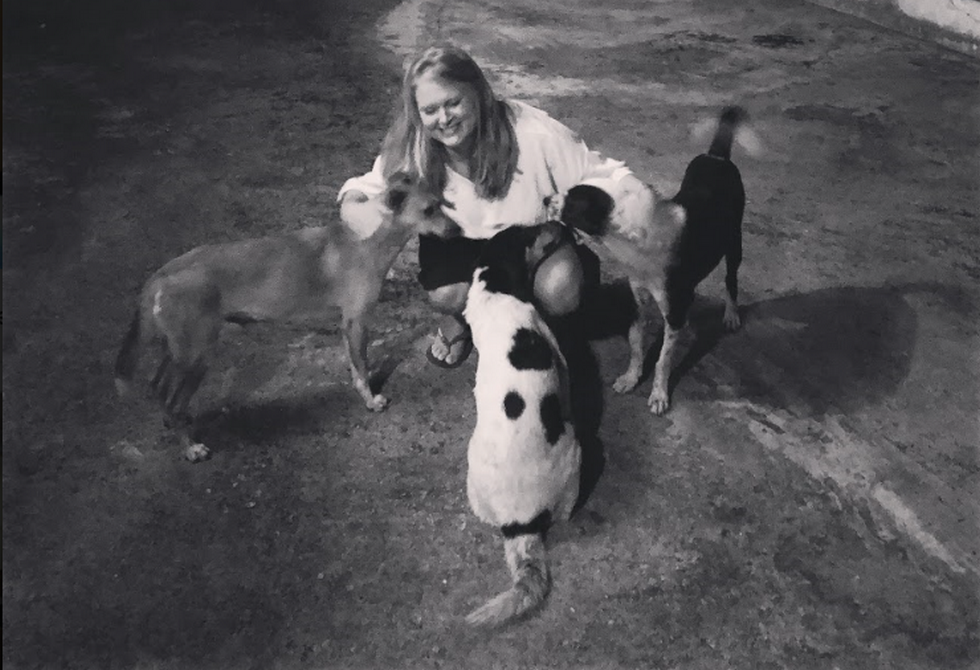
When she first came to Myanmar from Switzerland, she struggled to get use to frequent power cuts and slow internet that made it hard to keep in touch with the family and friends she left behind in Europe.
“Going from one of the most developed and organised countries in the world to one of least was a very big change,” she says.
But the changing and challenging everyday was interesting:
“I felt instantly more alive in Myanmar. Not a single day is the same here.”
She lived in Yangon, the biggest city in Myanmar, until August 2018 where she decided to move to Naypyidaw in order to be closer to the government departments she works with. With her, she brought two cats, that has found the new life in Naypyidaw a bit strange with four dogs suddenly craving for their owner’s attention. Life here is strange for Hanna Helsingen as well, since Naypyidaw is a city unlike many others.
In 2005, Yangon lost its status as capital in favour of Naypyidaw. The new capital was built to house a population that never moved there, and now Naypyidaw is known for its odd combination of large size and low population density.
Few expats like Hanna Helsingen live here, and they have a WhatsApp group called Need some life in Naypyidaw! to help each other make the most of life in the quiet city. Unlike most other Asian capitals, Hanna Helsingen does not spent hours in traffic jam when she goes somewhere – there are not enough cars to cause traffic jam.
The lack of city noise also makes room to the sound of birds:
“I really like to be able to hear birds. You don’t get to do that in a lot of Asian cities.”
Different priorities
Hanna Helsingen has her office at the environmental conservation department and spends a lot of her time in meetings with government departments or other international organisations working towards the same goals as WWF.
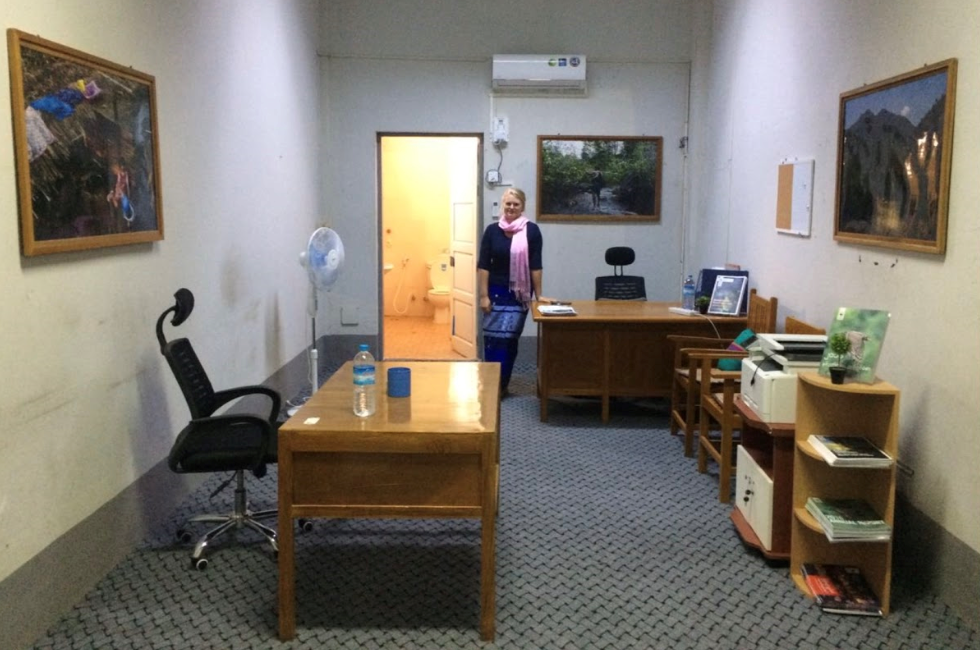
One of the underlying challenges in her work is the prioritization of the environment:
“The problem with development of a country is that there are many different priorities like health, education or peace to take care of. Often, the environment is not one of the top priorities.”
She also experiences, that there is an idea about only to care for the environment after the country has reached a certain standard. She believes that is a wrong approach:
“Avoiding addressing environmental issues only makes it more expansive to fix later on and also adds more issues in the long run.”
Despite the challenges, she is impressed with the parts of the government she works with:
“They are in general very hard working and I feel there is a strong willingness to do things differently.”
During her years in Myanmar, she has watched the number of staffs in the environment conservation department grow from 50 to more than 600.
For the past 1,5 year she has been training the new staff in environmental policy issues and she finds it exciting to watch the new staff develop.
In her work with the Dawei Road she has also experienced development among the staff:
“I’m proud of how some of the government staff on this project have changed their mindset and actually understand that roads have a lot of impact on the surrounding nature.”
With that said, she still believes WWF has a lot of work ahead of them with the Dawei Road.
Next stop: Singapore
Hanna Helsingen’s life in Myanmar is slowly coming to an end. Last year she got married and she wants to live with her husband, who is based in Singapore. But she is not ready to leave Myanmar behind.
“I became an adult in Myanmar and that’s one of the reasons why I haven’t left yet.”
Even though she is going to leave the country, she will still keep her job with WWF and on a regular basis travel the more than 2000 kilometers between Singapore and Myanmar.
It does not sound optimal, but the country that at first was very unfamiliar has grown on her:
“Myanmar has a dark history, a complicated present and has many issues to deal with in the future. But it has remarkable people. I have experienced kindness in its true meaning in the sense that people, that being strangers, friends or colleagues, have done things for me without expecting anything in return,” she says.
That is undoubtedly another reason why she is still in Myanmar. There is also a lot of work to be done on the Dawei Road yet, so Myanmar is not waving goodbye to her for a while.
